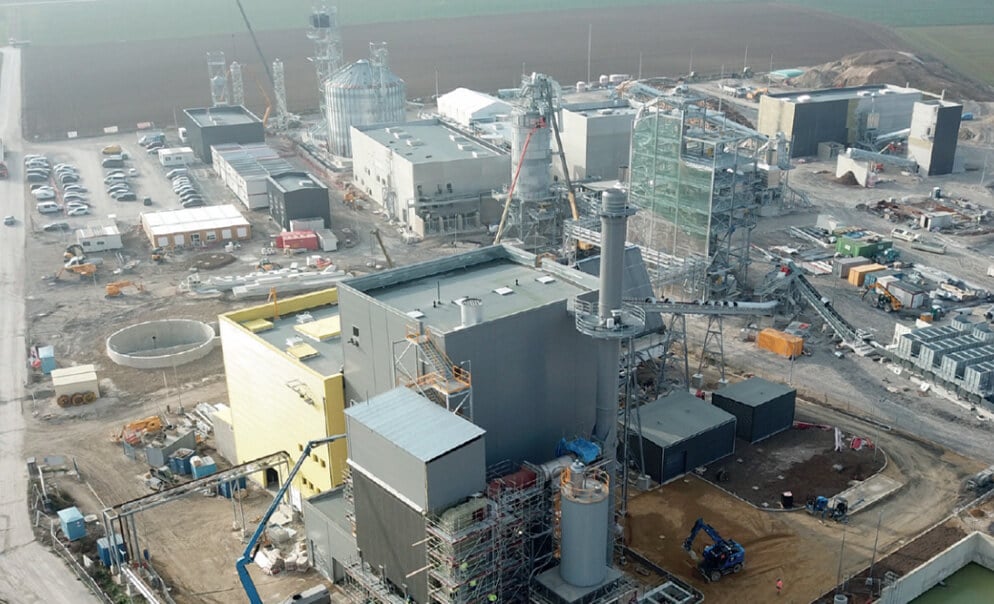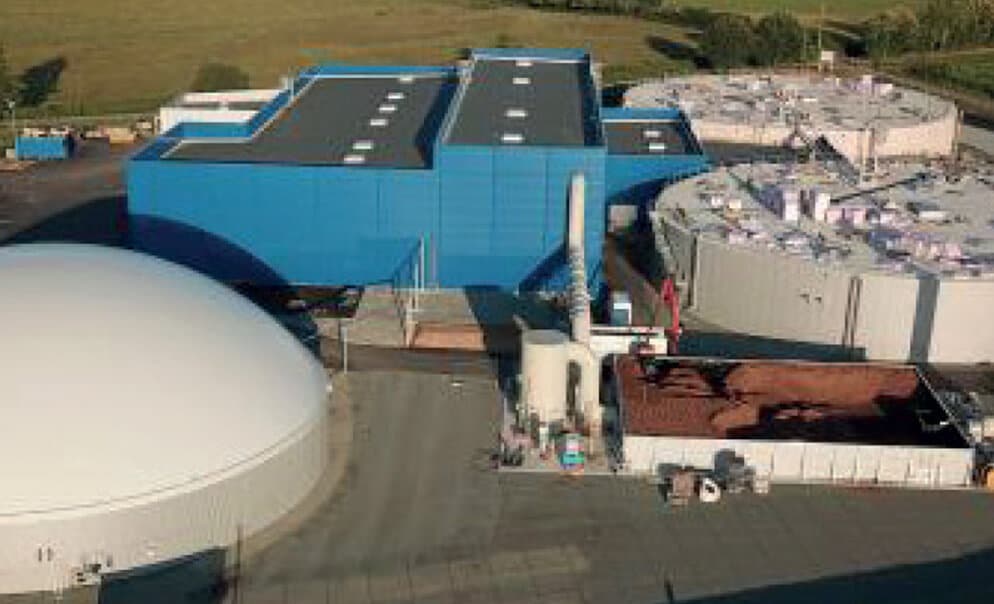Our impact
Waste to energy
Meridiam’s portfolio of Waste to Energy projects is growing and diversifying
Transition to renewables, circular economy principles and support for new technology, SMEs and local communities.
Increased revenues of over
12,000 local smallholders
Stake in the biogas assets platform BMP
70%
WTE plants
9
Projects converting Waste to Energy (WTE) are growing in number as a significant area of focus of Meridiam’s business. There are now eight separate investments in Meridiam’s WTE portfolio, following financial close being reached recently on several new projects. Cursory glance across the list shows considerable diversity. Projects range from large scale WTE plants generating heat and electricity from municipal waste, to the purification of biogas at landfill sites for domestic use as Renewable Natural Gas. Several of Meridiam’s WTE projects are developing or operating plants at more than one site. The portfolio now includes WTE operations at around 20 separate locations in total.Through a strategic partnership with Evergaz France, for instance, Meridiam has acquired a 70% stake in the biogas assetsplatform BMP (Bio Methanisation Partenaires), which operates nine WTE plants; some generate biogas/ NGV for commercial sale through methanization of agricultural waste and others use cogeneration units to turn the biogas into electricity and heat as well.
Common to all of these projects is a drive to aid transition from fossil fuels to sources of renewable energy, combined with numerous other benefits. WTE projects are directly in tune with Meridiam’s central mission of investing in sustainable infrastructure with positive impact. The very nature of WTE operations not only secures contributions to national and international targets – such as the UN’s Sustainable Development Goals, which are central to Meridiam’s impact-oriented approach. They also have highly localised characteristics, benefiting local businesses and communities.
The Biokala Biomass project launched recently in the Ivory Coast is a case in point. Through a 28- year concession, Meridiam and its partners in the project, EDF and SIFCA (an Ivorian agribusiness group), will design, build, finance and operate a WTE plant fuelled from combustible biomass sourced from local plantations, to generate electricity via a 46MW thermal power plant.
This will contribute significantly to the Ivorian Government’s national plans for increasing the share of renewables in the country’s energy mix. Designed to be ‘multisectorial’, the project will also form an industrial base with jobs and economic benefits associated with the site’s energy generation and transmission by local utility provider CIE. Plus, it will boost the local agricultural economy by valorising its waste as biomass and avoid 4.5 millions tons of CO2 over the lifetime of the project.

FICAP/COGECAP (Pellets)
It is estimated that the project will increase revenues of more than 12,000 local smallholders by between 12% and 20% overall. The direct link established with the smallholders will also be leveraged to provide them access to better and more sustainable agricultural practices.

Agrimaine biogas cogeneration
Biokala Biomass follows a similar model established at biogas sites in France. The Agrimaine Biogas Cogeneration project in an agricultural region of Western France, which reached financial closing in December 2017, was formed by a partnership of Meridiam and AB2M, a company representing local farmers. These 113 local farmers benefit from receiving revenue from sale of their organic waste to the project company Agrimaine and from a share of the commercial sales of electricity and heat generated. The extra revenue for the local farmers amount to 7000 EUR/y/farmer. “Helping local farmers was crucial to the aims of Agrimaine and we will work to maintain that initial spirit of the project. Methanization slurry supplied from farms within 25km of the plant is still providing 99% of the feedstock for producing biomethane, which is generating heat and electricity and revenue which is very reliable through long-term fixed tariffs,” says Meridiam’s Agrimaine project manager, Marjorie Lemos.
“The project has effectively developed a virtuous circular economy. As co-shareholders, the farmers receive revenues from the plant and by supplying their waste as feedstock; and they now also get back a share of the plant’s digestate as an ecologically friendly fertiliser, which is helping to reduce their costs as well.” There tends to be two main types of agricultural business in this part of France, Marjorie explains: the large-scale and generally economically successful arable farms; and the smaller farming businesses which often find the going a lot tougher.
“Through involvement as partners in Agrimaine Biogas Cogeneration project company, these farmers are receiving a considerable boost to the sustainability of their businesses,” Marjorie says.


